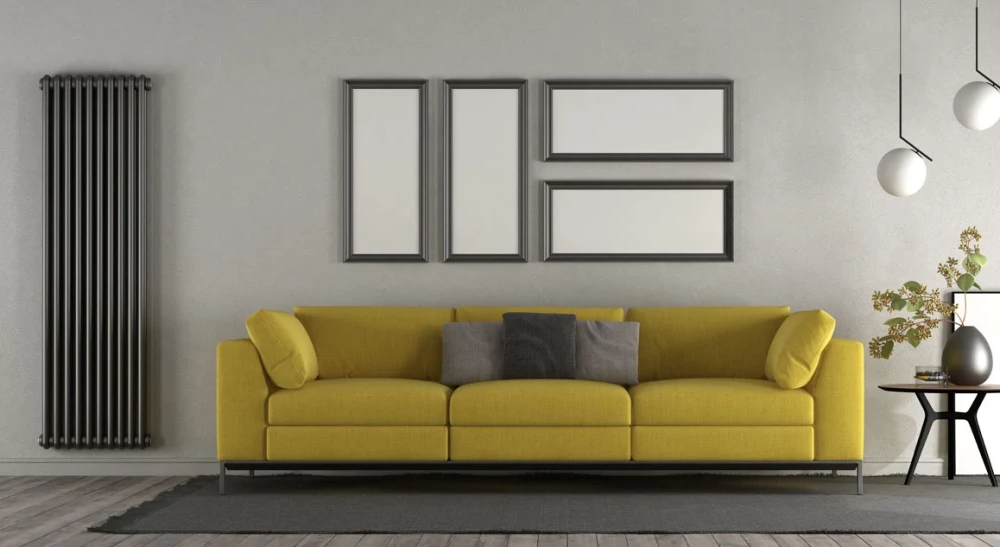
Vertical Radiators in Hebburn Colliery
Vertical radiators are an excellent choice for homeowners seeking both style and efficient heating solutions.
Our top picks
These tall, sleek appliances are gaining popularity as they not only save precious wall space but also deliver superb heat output. In a world where interior design plays a crucial role in creating a comfortable living space, vertical radiators are becoming a preferred choice for many households.
Traditionally, horizontal radiators have been the norm; however, the increasing demand for versatile heating options has led to the development of vertical designs. These innovative radiators come in various styles, materials, and finishes, making them ideal for modern and traditional homes alike. The primary function of a radiator is to provide warmth, and vertical radiators are no exception; they are designed to offer efficient heating while taking up minimal space on walls.
When considering the purchase of a vertical radiator, it's essential to pay attention to factors such as its heat output, size, material, and ease of installation. The radiator's heat output, measured in British Thermal Units (BTUs), should be adequate to heat the room where it will be installed. Additionally, it's crucial to consider the size of the radiator in relation to the space available, ensuring it will fit comfortably without affecting the room's aesthetics or functionality. Material selection is another consideration, as options like steel, aluminium, and cast iron have varying levels of heat retention and durability. Finally, ease of installation and compatibility with existing heating systems should factor into your decision-making process.
In this article, we offer insights into the features and benefits of vertical radiators to help simplify your selection process. By understanding the crucial aspects to evaluate, you'll be better equipped to make an informed decision on the ideal vertical radiator for your home, ensuring efficiency and style in equal measure.
Top Vertical Radiators
Discover the best vertical radiators in our carefully curated selection, showcasing impeccable design and outstanding performance.
1. VeeBath Metz Slimline Low Carbon Mild Steel Matt Anthracite Vertical Double Panel Bathroom Heating Radiator - 1800 x 460mm
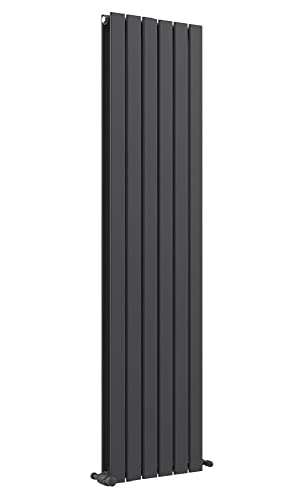
Review coming soon
£139
Updated 23 hours ago2. VeeBath Lyon Matt Anthracite Low Carbon Mild Steel Vertical Flat Double Panel Mirror Heating Radiator - 1800 x 505mm
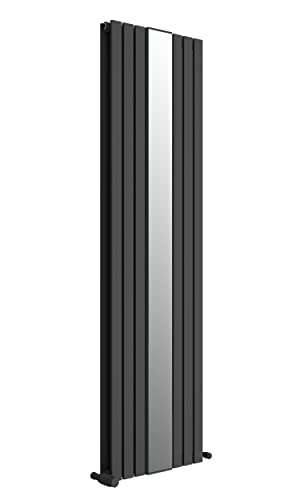
Review coming soon
£280
Updated 23 hours ago3. ELEGANT 1600 x 452 mm Designer Vertical Column Radiator White Double Flat Panel
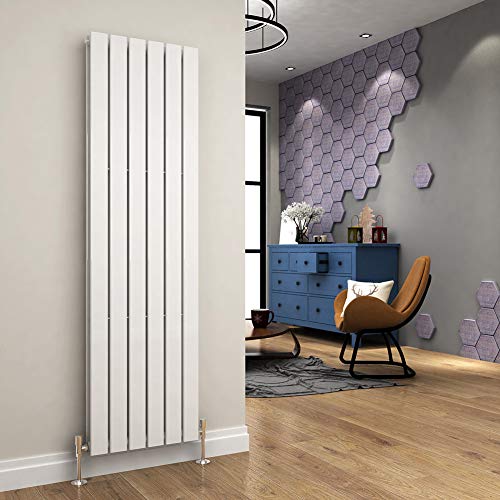
Review coming soon
Save £6
£193.99
Updated 23 hours ago4. DuraTherm 1800 x 452mm Anthracite Vertical Column Designer Radiator Flat Panel Single Panel Bathroom Rad
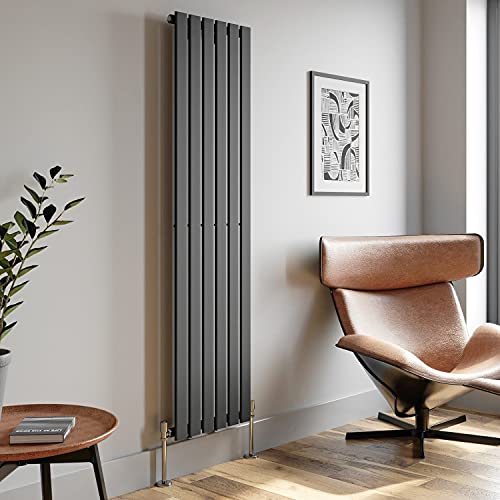
Review coming soon
Save £14.03
£114.97
Updated 23 hours agoBuying Guide
When it comes to choosing the best vertical radiator for your home, there are several factors to consider. In this buying guide, we will discuss the key features and considerations to make an informed decision.
Heat Output
Firstly, consider the heat output of the radiator, which is measured in British Thermal Units (BTUs). To determine the right output for your space, you can use online BTU calculators. Keep in mind that a higher BTU value means more warmth, but also potentially a higher energy bill.
Size and Dimensions
Vertical radiators come in various sizes and dimensions, so it's crucial to choose one that fits your space. Take note of the available wall space and measure it accurately before making a purchase. This will ensure that the radiator is not only efficient at heating your room but also complements its aesthetics.
Material
Common materials for vertical radiators include steel, aluminium, and cast iron. Each material has its pros and cons:
Steel: Widely-used, durable, and budget-friendly
Aluminium: Lightweight, corrosion-resistant, and quick to heat up and cool down
Cast Iron: Retains heat for longer periods but takes longer to heat up and is heavier.
Consider your preferences, budget, and the room's requirements when choosing the material.
Design and Style
Vertical radiators come in various designs and styles, from traditional to contemporary. Think about how the radiator's design will complement your room's décor and personal preferences. Some popular options include column, flat-panel, and designer radiators.
Energy Efficiency
Opting for energy-efficient radiators can help reduce your energy bills and your carbon footprint. Look for features such as thermostatic radiator valves, which allow you to control the temperature more accurately, or double-panel radiators that provide better heat output with the same size.
Installation and Maintenance
Finally, consider the ease of installation and maintenance required for your chosen vertical radiator. Some designs might be more straightforward to install than others, and certain materials might require more upkeep. It's crucial to weigh these factors against your available time, budget, and DIY skill level.
We cover Hebburn Colliery (Tyne and Wear)
